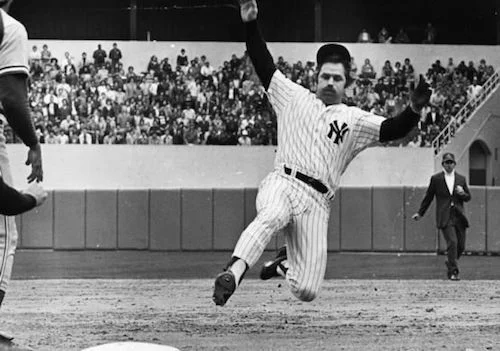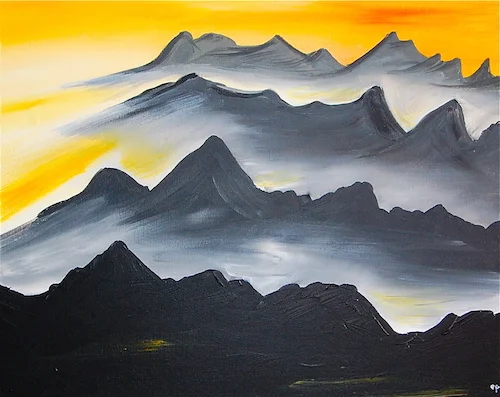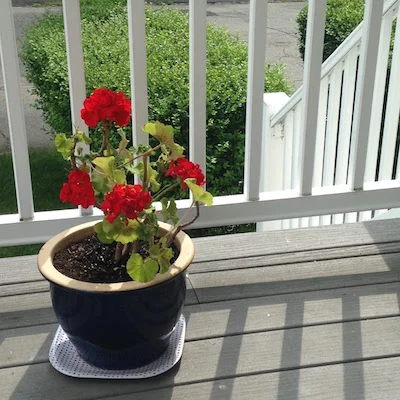I love to roam the food writing section of a bookstore, thumbing through cookbooks and looking for the latest cooking memoir. Though my kitchen shelves are nearly full, I can always squeeze in another book of recipes or something educational and fun to read like Michael Pollan’s Cooked. I feel a kinship with people who work with food and spend untold hours in the kitchen. I’m drawn to their stories like a magnet.
Our Gathering Song
However we hit it, we’re usually all happy by the time we finish the Doxology. No matter how we started, we end in gladness. Singing that poem of praise with these people has lifted my fog or funk or fatigue. We may yet find snark during our meal. One or more of the boys may yet complain or provoke or chew with his mouth open and get a rebuke. The preschooler may yet take my coveted last piece of bread for himself. The baby will undoubtedly throw something gleefully on the floor. But we’ve begun with thanksgiving, which is the least we can do.
When Time Slows Down
I think back to this Paris trip often. How gracious it was of my mom to not demand the time with me. How focused I was on seeing as much as I could, when the most meaningful and fleeting thing was beside me. The best part of Paris didn’t end up being the Louvre or the Seine. The best part of Paris ended up the time I spent with my mother.
Here I Sit
The act of writing itself carves out space for beauty in my life. This has always been true, but without the pretention of doing something big and important, I can relax into whatever shows up on paper—the mess and joy and struggle and grief and giggles of life. These are not the habits of a serious writer, of course. These are not the daily practices and evaluations needed to send a piece out into the world, just as letting the garden go to the wild won’t work as a long-term strategy. But this is what writing is to me right now, how I remember that writing starts with glimpsing into a world of magic, that it starts with, “Here I sit.”
Finding Voice
When I place a record on the turntable, something in me slows down. It simply will not do to continue the multitasking that consumes most of my days and some of my nights. This is not background music for grading; it is an experience. I must listen. And as I listen, the experience threads its way into the busyness of my everyday. As I listen, the crackle and hiss of the turntable’s voice lets me into the wild soul of the music.
Heading Home
Baseball is the embodiment of hope—a sense that is depleting with each new ailment my grandparents suffer. Every batter that approaches the plate is like a new mercy with the potential of fixing all of the previous wrongs. Baseball is the game for the most moderate of hopefuls - if the batter hits the ball at least one out of every three attempts, we call him great. That’s the sort of expectation my grandparents have lived in their lives, never hoping for too much, but working their hearts out to stay above too little. Now, as their physical capacity to enjoy life fades a little bit each day, they’re hoping for a little relief from nine innings of possibilities.
What are We if Not Burdens?
It is obtusely modern to avoid the appearance of being a burden to anyone, least of all those we call friends. Neediness reeks of weakness, and vice versa, and there isn’t much space for needy people in our self-confident, never-enough culture. An emotional wreck myself, I admit to the failure of isolation and individualism. Rather than having admitted any sort of need, I’ve taken shelter in the false forests, crawling along its trails with a backpack much too heavy, snuffing out the wisps of grief, raking the carcass of shame across the embers of anxiety, and making meals out of burden.
The Anxious Agitator: Martin Luther
Martin quotes Jesus, who said, “Do not be anxious, saying ‘What shall we eat?’ or ‘What shall we drink?’ or ‘What shall we wear?’ Your heavenly Father knows that you need these things.” As we amble through the grass, I picture Martin as the young man who bolted across this very meadow, caught in the stormy terror of God’s wrath. Here he is, speaking of grace. I know that it’s not easy for him. But he offers that grace to me, all the same.
The Full Spectrum
There is only one element I don’t want here in this jumble of life that is suddenly, surprisingly beautiful to me. Except sometimes I do want it, when the autism augments the good of who my daughter is without adding to her misery, that same misery we all know in one way or another during this life between Edens. What I want is for the autism to diminish, and if it can’t do that in her bodily experience, then at least it can grow smaller within the space it takes up in my imagining and understanding of this wonderful girl. I don’t yet know how to relegate it to its proper place, but I am hopeful. If my favorite house is the messy one now, then I can change and grow, too.
The Dilemma of Desire: Juana Inés de la Cruz
You haven’t heard of Sor Juana Ines de la Cruz? You can blame it on centuries of storytellers, the ones who’ve recounted the intellectual traditions of men and ignored the silent and silenced contributions of women. Your ignorance is no surprise. Even in her own day, Juana’s bold public voice was hushed by bishops and priests. It’s been 350 years since she lived, but it’s not too late to bring Juana back. Her words have been here all along.
The Pecan Orchard
The Orchard stands at the end of the road. Waiting. Solid, robust, kindly, full of route and routine, of dank pockets where rain has padded the soil, of the sound of small, dry leaves shaken by the wind. Oh, all the stories I played there: it was a kingdom of the imagined, an arena of the kind of grace that allows for further creation—however misplaced, silly, phantastical, fleeting, and even unreal.
I’ve Loved This
I have not liked it here, and I’ve felt guilty about not liking it here: I know I should be grateful for a roof over my head, a safe and warm place to sleep, enough money to pay the rent and other bills. I know we were lucky to have six years in our previous place, and to leave it on good terms. Yet I’ve missed the old place and struggled to find reasons to love the new. It has not felt like home, though we’ve adjusted, done our best to make it work. But now, ironically, as we prepare to leave, I’m realizing what I have liked, even loved, about this place.
All Who Enter Here
When I was younger I came to this plot of land for years—almost 25 in a row—roaming the grassy shoreline, rowing around lily pads and tree stumps poking through the pond water, and running sweaty laps up and down Forshee Road. As an adolescent, I bloomed in the sensual soil of this place. I thrived during weeks like this one now, when I was the child vacationing here with my parents, brothers, and sisters. Year by year, we formed a kind of family liturgy, a joyful way of being together that transcended the reality of the modest little cabin and weedy pond.
What Light There Is
I have become, in the past few years, a seeker of the light. Now that it doesn’t pour over my shoulders each day, unasked and abundant, I’ve learned to keep an eye out for it. I can’t make it appear, but I still crave it, and I am learning to watch for—and appreciate—what light there is.
Testing Siri
What I love the most about Siri is if I make a mistake—a wrong turn, for example—she doesn’t tell me. She just finds a new path for me without saying, “re-calculating.” Sometimes, I’d make a mistake on purpose, just to see if Siri could find me and figure out what to do with me next. She always did. Only a few times has she told me to, “proceed to the route,” and I do, wondering only for a moment if her robotic female tone sounds mildly snarky and exhausted with me.
A Map of the Heavens in Four Poems
It lies on its side, that large, bell-cupped vessel. With the seraph-scrolled handle meant. For comfort’s grip, meant to hold tea and warmth. It is nearly empty and very cold now, rolling on its curve.
In the other room, I can hear him thrashing. I ignore the sounds, the moaning, finally, the silence. In my chair, I read a magazine, anything to delay. The vault into that high bed with the pillow top.
Meeting Barbara
Romero was blooming last year the week I moved to Pittsburgh. I was intrigued, but busy unpacking and settling in. This year when an email from Phipps announced, “They’re coming to SNIFF you, Barbara,” I decided to go. It was an excuse to run away from home.
Permission to be a Beginner
Taking this pottery class was giving that back to me. I was a beginner again. I wasdoing it simply because it brought me joy. Sitting at the pottery wheel was giving me freedom and space. I’d sit and work the clay, and my mind was at rest. The wheel would spin and the clay would slide through my hands, and I could feel myself relax. It was quiet. I needed that.
Vernal Equinox
Three daybreaks in a row, I spot a long-necked snowy egret, a thing I’ve rarely seen on Ocracoke during crowded summers. I will see a fourth and a fifth before this week is out. I’m cycling on the sound side of this windy barrier island, 20–25 miles out into the Atlantic Ocean off the coast of North Carolina. I’m here in late winter, in time for the run up to Vernal Equinox and to learn from the elegant waterfowl and her windswept empty beaches how to be and think and pray afresh—how to work and play in an uncluttered, unfettered manner.
Wild Wonder: Embodying Faith through Creation Care Camp
At camp, we sing, “All your works are good. From everlasting to everlasting, all your works are good.” We live in that in-between-time, where all things are not yet made right. But when we plant a seed in the ground or prepare a feast for thirty campers or delight at the soft touch of a newborn lamb, we are partaking in the heavenly Kingdom. The plant, the bread, the created life of the little lamb—from everlasting to everlasting, ALL of these things are good.


































